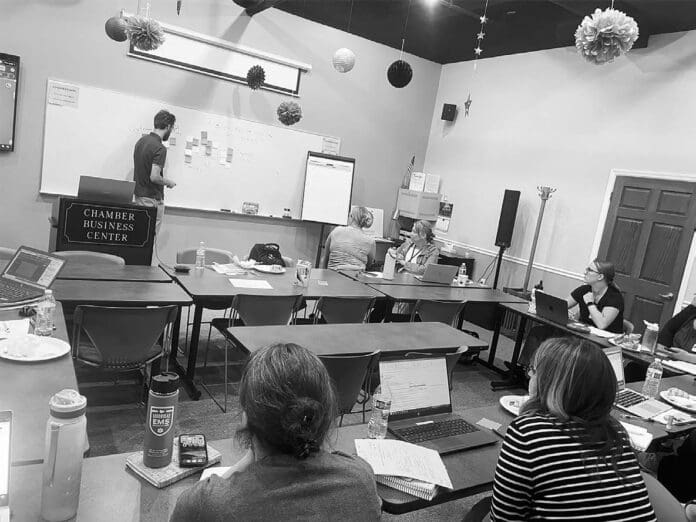Wilderness Health
Northeast Minnesota has higher rates of adults and children impacted by substance use disorder (SUD) than the state average. Families, especially those who are pregnant, are less likely to seek treatment out fear of being treated poorly by the healthcare system and being separated from their families. The history of criminalizing substance use has not decreased substance use or improved patient outcomes. Instead, families forgo care out of fear of how they are treated by the healthcare system.
Healthcare professionals are starting to change their practices to meet patient needs. In June of 2024, Wilderness Health started work on a new grant: “Enhancing Outcomes for pregnant/postpartum families impacted by Substance Use Disorder” grant (EOPI-SUD), funded by Minnesota Department of Health for $435,595. In January 2025, Wilderness Health hired a perinatal project coordinator to work full time on this grant. The grant utilizes a harm reduction and education approach to foster a more welcoming environment in communities and healthcare systems throughout northeast Minnesota.
A harm reduction approach equips people with the tools and information needed to improve and save lives. Here’s an example of harm reduction we already practice: seat belts. Car crashes have high rates of fatalities, and seat belts reduce that risk and increase safety. Minnesota state patrol data shows that after updating the seat belt law to include all drivers and passengers in 2009, the number of fatalities that were known to be unbelted motorists dropped from 51% to 34%. 1008 per year to 446).
Harm reduction with pregnancy and SUD has the same effect—many community organizations want lifesaving materials, like naloxone, on hand. It saves lives and increases the health of the community. Wilderness Health grant funds will be used to increase access to naloxone in communities and hospitals, to provide resources and training around harm reduction in healthcare facilities, and foster an environment where more patients feel welcomed.
To foster that environment, Wilderness Health has brought on Laura Rosier LSW, as a perinatal project coordinator. “All of this work starts with a trauma-informed lens and a women-centered approach with women’s voices,” Rosier says. “Rural health and obstetrics face a unique set of barriers, but rural does not need to mean underserved. Grants such as this allow for systems and capacity to be built to service population needs.” Rosier will be building stronger connections between hospitals and local communities to provide a better environment for this population.
Partners from Aspirus St. Luke’s, Carlton County Public Health, Fairview Range, St. Louis County Public Health, the University of Minnesota Duluth, Harm Reduction Sisters, Center Alcohol and Drug Treatment (CADT), Fond du Lac Community Health, and more participate in the newly formed project workgroup. This passionate workgroup is building connections in hospitals and community organizations across northeast Minnesota to assess the current situations, processes, attitudes, and gaps around SUD.
By listening to our community’s needs and improving our approach to SUD in our hospitals, we can rebuild trust and improve healthcare for our region. “For pregnant and parents using substances, stigma, judgment, and blame are significant barriers to accessing prenatal and postpartum care,” Rosier said. “Changing the way we talk about substance use can not only help reduce the negative impacts of stigma, such as feelings of isolation, but can also be essential to the healing journey of women who use.”
Are you a health professional passionate about maternal health? Contact Chance Lasher at chance.lasher@wildernesshealthmn.org to stay in the loop on updates and future activities.
The Minnesota Department of Health (MDH) mission is to protect, maintain, and improve the health of all Minnesotans. MDH envisions a Minnesota where all communities are thriving, and all people have what they need to be healthy.




